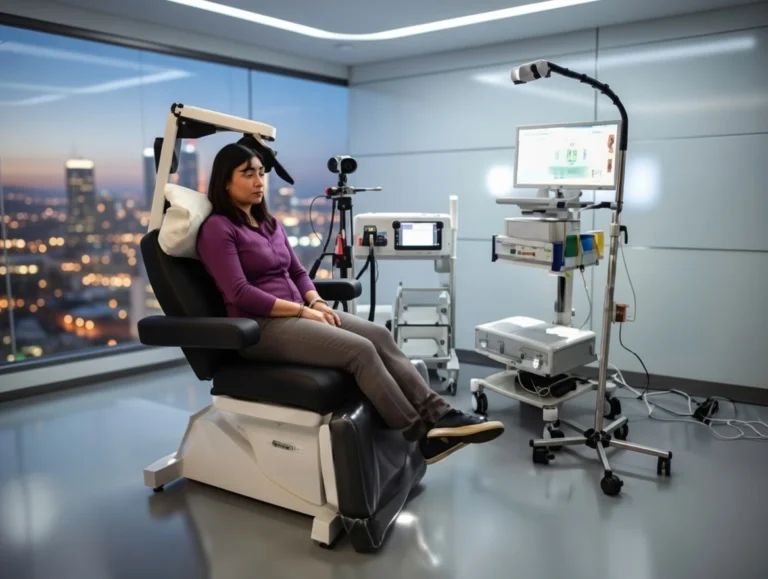
PhotoPharmics, a leader in phototherapy for neurodegenerative diseases, has announced the enrollment of the first 100 participants in its Light for PD clinical trial. This milestone is a key step in assessing Celeste, the company’s FDA Breakthrough light therapy device for Parkinson’s disease (PD). The trial aims to enroll a total of 300 subjects. Those interested in participating can find more information at lightforpd.com.
The Light for PD trial is a randomized, double-blind, placebo-controlled study designed to evaluate the safety and efficacy of Celeste, a light therapy device for Parkinson’s disease (PD). This innovative trial aims to show improvements in motor and non-motor symptoms that go beyond current medical treatments. Parkinson’s disease disrupts essential brain signaling for movement and other functions, with recent research highlighting the role of the eyes in this process. Celeste delivers specific light wavelengths to restore retinal signaling, potentially enhancing function and quality of life for PD patients.
“We’re excited to reach this key milestone,” said Kent Savage, CEO of PhotoPharmics. “We appreciate the efforts of the University of Rochester’s Center for Health + Technology (CHeT) and the movement disorder neurologists nationwide who are enrolling and caring for trial participants. We believe our non-invasive, passive phototherapy device can offer significant benefits to those affected by Parkinson’s disease.”
Dr. Ray Dorsey, Professor of Neurology at URMC and lead investigator for the trial, added, “This milestone is a major step forward in exploring innovative Parkinson’s disease treatments. The Light for PD trial utilizes cutting-edge phototherapy to potentially improve both motor and non-motor symptoms, offering new hope for patients. The collaboration with PhotoPharmics and the dedication of participants highlight the importance of advancing research to find effective solutions for neurodegenerative diseases.”
About the Light for PD Clinical Trial
Participants use the Celeste device for one hour daily during routine activities like reading, eating, or watching TV. This passive, non-invasive therapy complements existing treatments without altering medication regimens. The trial’s at-home, telemedicine-based format increases accessibility, allowing broader participation, including those in remote areas.
The study’s primary endpoints include improvements in quality of life, motor function, sleep quality, mood, and cognition, assessed through clinical scales and patient-reported outcomes. Preliminary results from early-phase studies suggest that this specialized phototherapy could significantly alleviate PD symptoms with minimal side effects, offering a new non-invasive treatment option to enhance daily life for patients.
Dan Adams, Chief Medical Officer at PhotoPharmics, said, “We are dedicated to advancing phototherapy for neurodegenerative diseases. Our focus is on understanding retinal deterioration’s impact and developing non-invasive treatments to improve quality of life and potentially slow disease progression.”
Commitment to Innovation
PhotoPharmics is committed to leading the way in medical treatment innovation by exploring the therapeutic potential of specialized light. Their technologies are supported by rigorous scientific research and clinical validation, ensuring high standards of efficacy and safety.
As the Light for PD trial progresses, PhotoPharmics remains focused on transforming Parkinson’s disease treatment and is also investigating its light therapy technology for other neurodegenerative conditions, such as Alzheimer’s and Huntington’s disease.
“We look forward to expanding our light therapy technology to other conditions,” said Savage. “Our goal is to provide safe, effective, and innovative treatments that enhance patients’ quality of life and offer new hope in managing neurodegenerative diseases.”




